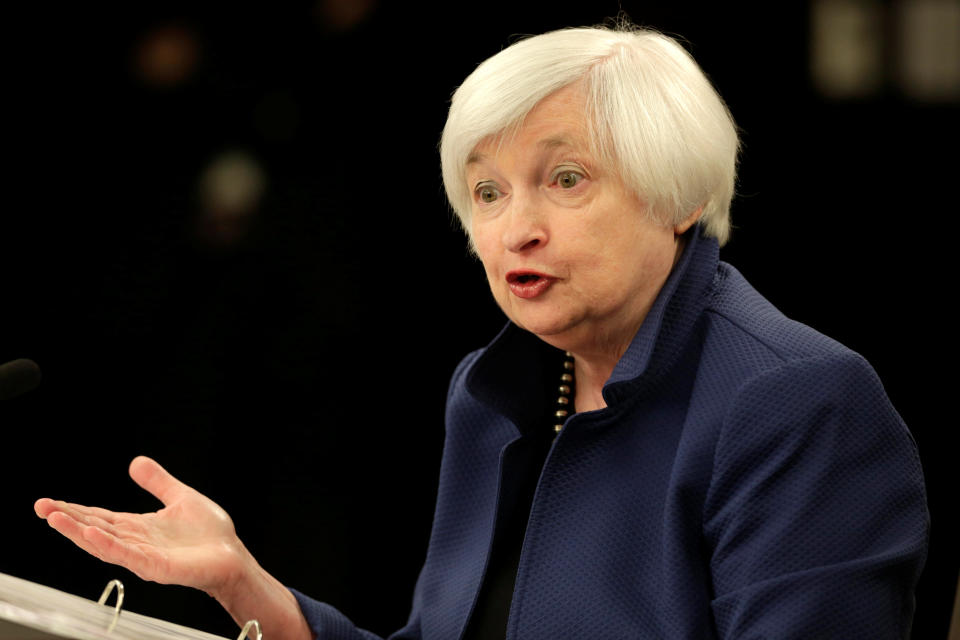Here's how the Fed rate hike affects you
The Federal Reserve has raised interest rates for the first time in 2017, citing economic progress, raising the federal funds rate a quarter percentage point to a range between 0.75% and 1%. The Fed also indicated it would raise rates twice more this year.

While this announcement may meet policy wonks and banker types with a nod or a head shake—not everyone agrees with this hike—the news might as well be in another language for regular people. What the heck does a rate hike mean for ordinary consumers?
Mortgages
Mortgages that don’t have fixed rates are always susceptible to rate hikes. Small bumps make a big difference. For example, a 0.75% difference on a $200,000 loan means spending $100 more a month in mortgage payments. So if you’re in the market for a mortgage or know you will be soon, it’s a good idea to start shopping. Mortgage rates have already been climbing higher in the last few months – the 30-year fixed rate rose to a nearly three-year high last week.
Savings accounts
“The most immediate impacts from the Federal Reserve’s decision to hike rates will be felt more among borrowers than for savers,” Mark Hamrick, a senior economic analyst at Bankrate.com, told Yahoo Finance last year. It can take a long time for the higher interest rates to trickle to savings accounts. Research by the Fed found that slow reactions from savings account rates cost savers $100 billion per year. But according to Hamrick, 2017 changes could finally result in better rates of return.
Credit cards
Like adjustable-rate mortgages, a rate hike can affect a credit card APR quickly, as quick as a month. And as interest rates rise, the APR – annual percentage rate, which you pay on your credit card balance – rises too. However, they are likely to feel small due to the magnitude of credit card interest rates: an increase of 0.75% next to an average rate of around 15% isn’t much.
Car and college loans
According to Bankrate, rate hikes don’t affect car loans particularly quickly, like savings accounts. And since college loans are often fixed, they are unaffected by the Fed’s rate hikes. However, future college borrowers may be affected if Congress, which decides student loan rates, raises them.
Read more:
5 key numbers from the CBO’s analysis of Obamacare repeal
Snapchat’s privacy standards lag Facebook, Apple, Google
Trumpcare to defund Planned Parenthood
Warren Buffett offers the best employee March Madness contest

 Yahoo Finance
Yahoo Finance 